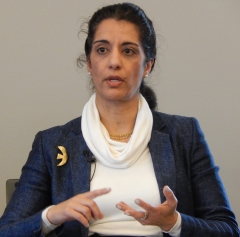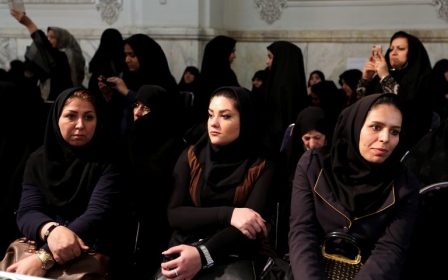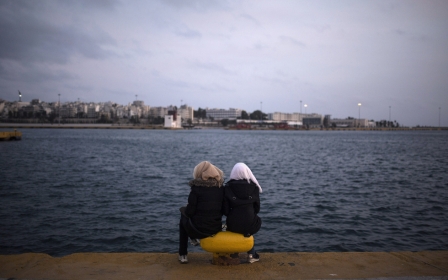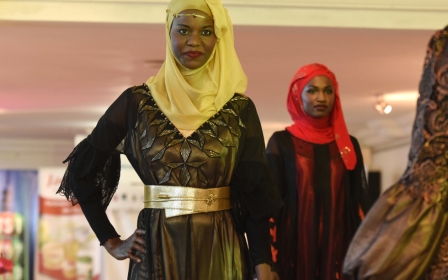Women still overlooked in vital peacekeeping process, study finds
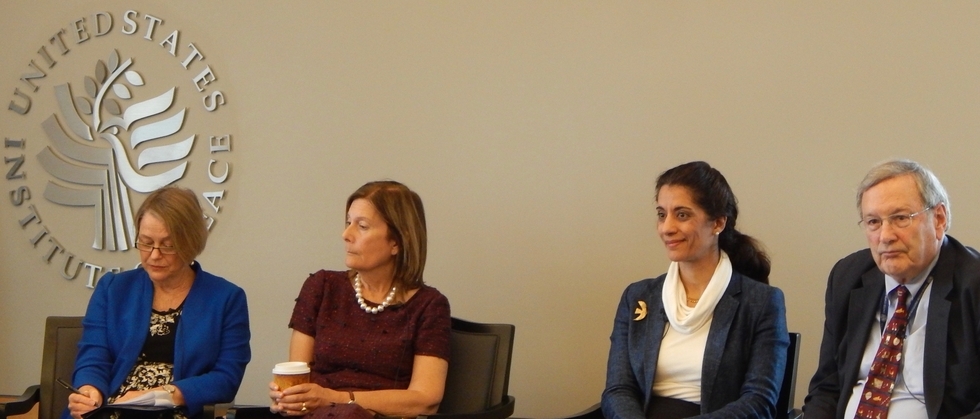
WASHINGTON DC - The United Nations passed Security Council Resolution 1325 on the role of women in peace and security in a world before the World Trade Center towers fell in New York City, before the 7/7 London bombings, before Boko Haram took 276 girls from their school at gunpoint, before the Syrian civil war and the Russian invasion of Ukraine. Now, sixteen years after its passage, experts warn that overlooking women as vital participants in the peacekeeping process can have grave consequences in the MENA region.
The legacy of the resolution and its four key pillars - protection, participation, peacekeeping and prevention of war - were the focus of a new report released by United States Institutes of Peace (USIP) and a panel discussion at the organization’s Washington D.C. headquarters this week, provocatively entitled “Advancing Women in MENA: Should We Keep Trying?”
Sanam Naraghi-Anderlini, co-founder and executive director of International Civil Society Network, warned that early signs of increasing violence against women can often signal an escalation of overall violence. “In the sixteen years that I’ve been going to the commission on the status of women at the UN, we have had the issue of extremism, of all forms - the Islamists, the evangelicals, the Catholics, you name it,” she said.
“And if it’s religious, it’s tying it to God. So God says it’s OK,” Naraghi-Anderlini told Middle East Eye. “It’s a very powerful thing, and the problem is that it starts off being against women, against minorities, against sexual minorities. And all of those things, from this side of the world, we say, ‘it’s their culture.’ We ignore it, we ignore it, we ignore it.”
Those early warning signs of extremism, if left unchecked, become a global issue. Only after extremism has led to terrorism does the international community step in, Naraghi-Anderlini said.
Violence against women
Sarah Yerkes, a visiting fellow at the Center for Middle East Policy at the Brookings Institute in Washington D.C., and a former State Department official working in North Africa and the Middle East, told MEE that regardless of ideology, major extremist and terrorist organizations share the common strategy of using violence against women as a tool of repression.
“Today, looking at the rise of ISIS and Boko Haram, they really do make their mark by these vast horrific attacks on women, on girls, and that’s something that should rally the international community,” Yerkes said. “We say this is enough and we need to stop this, but the question is why. What is it about Boko Haram abducting hundreds of girls that is an effective tool, and what is it about the international community that makes them think this will be useful?”
Men play a pivotal role in advancing the issues of women in peacekeeping, although many in the MENA region are uncomfortable discussing so-called “gender issues” or “women’s rights.” Instead, the panelists said it’s helpful to focus on how violence has impacted men’s lives, families, and communities.
Dr Paula Rayman, a co-author of the report and the director of the Middle East Center for Peace, Development and Culture, at the University of Massachusetts-Lowell, said: “Women and men need to be invited to ensure peace and security. Otherwise, it’s a one-handed handshake.”
In the US, three agencies are involved in implementing a national action plan for women in peace and security: the Department of Defense, the United States Agency for International Development (USAID) and the Department of State. Stephenie Foster, a senior adviser and counselor for the Office of Global Women’s Issues at the State Department, said the resolution has given her and her colleagues a framework to rethink their diplomatic missions.
“When we’re arranging meetings for Secretary Kerry or President Obama, we ask ourselves, ‘Have we invited women to this meeting? Who are they?’,” she said. “Are they people we feel like can not just speak about women’s lives as victims, but women as participants, women as problem solvers, and women who have helped resolved whatever problem sits before them not just in conflict-affected countries but in fragile countries, and really anywhere.”
Critics have said the US should take a more prominent role in championing human rights - especially women’s rights - in Middle Eastern and Northern African countries, but Yerkes says the US can be more effective using a lighter touch.
Carrot instead of stick
“It’s our place (to encourage gender equality), but it’s not necessarily our priority, and I don’t know that it should be,” Yerkes told MEE. “It’s something we can keep pushing on, but it’s more of a diplomatic conversation than a conditionality of aid, which doesn’t tend to work on many human rights issues in the region.”
“Using the carrot instead of the stick approach, like applauding countries like Tunisia when they do make progress, works better than naming and shaming approach,” Yerkes said.
The concept of bringing women to the discussion extends beyond diplomatic meetings and into the field, where the dearth of women in positions of authority is having dire consequences within the UN itself, as scandal after scandal plagues the venerable institution.
“We still have the problem of soldiers under the UN flag being involved in the sexual exploitation of girls and women on the ground. So the importance of having women involved in peacekeeping forces is one way of stopping that,” Naraghi-Anderlini said. “Because the worst thing that can happen is to have the UN out there with a flag … and having their soldiers abusing six-year-old girls in Central Africa Republic.”
Far from the nuances of when and how and in what capacity women can participate in the peacekeeping process, Ambassador Steve Steiner, a gender adviser at USIP, said how a country addresses its women’s rights sends a powerful signal to the world.
“Any country that doesn’t empower half of its population, particularly the female half, politically, economically, socially,” he said, “is not going to be a very successful nor a very gentle country.”
New MEE newsletter: Jerusalem Dispatch
Sign up to get the latest insights and analysis on Israel-Palestine, alongside Turkey Unpacked and other MEE newsletters
Middle East Eye delivers independent and unrivalled coverage and analysis of the Middle East, North Africa and beyond. To learn more about republishing this content and the associated fees, please fill out this form. More about MEE can be found here.


